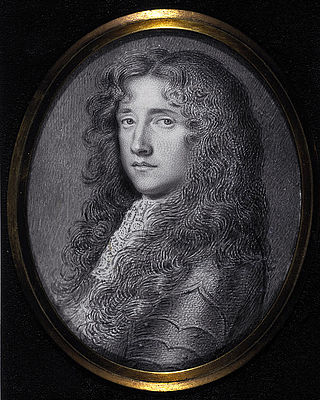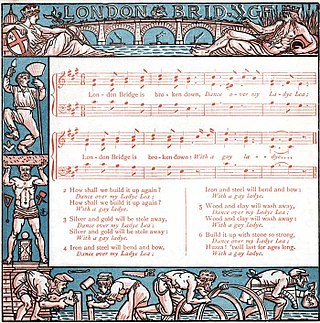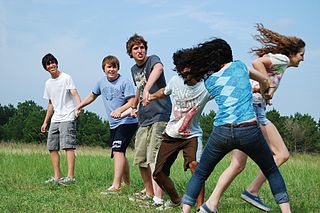

"Did You Ever See a Lassie?" is a traditional Scottish folk song with a Roud Folk Song Index number of 5040.


"Did You Ever See a Lassie?" is a traditional Scottish folk song with a Roud Folk Song Index number of 5040.
Modern versions of the lyrics include:
The use of the terms "lassie" and "laddie" mean that this song is often attributed to possible origins in Scotland (by various forms of media; see "references" section), but it was first collected in the United States in the last decade of the nineteenth century and was not found in Great Britain until the mid-twentieth century. However, it can be surmised that the words to the song may have come from Scottish immigrants or Scottish-Americans because of the aforementioned terms. [3]
Along with "The More We Get Together", it is generally sung to the same tune as "Oh du lieber Augustin", a song written in Germany or Vienna in the late seventeenth century. [3]
It was first published in 1909, in Games for the Playground, Home, School and Gymnasium by Jessie Hubbell Bancroft. [4]
The song is often accompanied by a circle singing game. Players form a circle and dance around one player. When they reach the end of the verse they stop, the single in the middle performs an action (such as Highland dancing), which everyone then imitates, before starting the verse again, often changing the single player to a boy, or a boy can join the center player - thus creating an extra verse in the song ("Did you ever see a laddie..."). [5]
The song is featured in the 1963 motion picture Ladybug, Ladybug . In the movie, children sing the song as part of a game while walking home from school during a nuclear bomb attack drill.
The song, as sung by children, was used in a 1990 commercial for Maidenform, and played over a succession of pictures of women in uncomfortable-looking clothing, was followed by the tag-line, "Isn't it nice to live in a time when women aren't being pushed around so much anymore?"
The song is featured in an episode of The Simpsons , "The Otto Show", and was titled "Hail to the Bus Driver".

Bonnie Dundee is the title of a poem and a song written by Walter Scott in 1825 in honour of John Graham, 7th Laird of Claverhouse, who was created 1st Viscount Dundee in November 1688, then in 1689 led a Jacobite rising in which he died, becoming a Jacobite hero.

"London Bridge Is Falling Down" is a traditional English nursery rhyme and singing game, which is found in different versions all over the world. It deals with the dilapidation of London Bridge and attempts, realistic or fanciful, to repair it. It may date back to bridge-related rhymes and games of the Late Middle Ages, but the earliest records of the rhyme in English are from the 17th century. The lyrics were first printed in close to their modern form in the mid-18th century and became popular, particularly in Britain and the United States, during the 19th century.

A singing game is an activity based on a particular verse or rhyme, usually associated with a set of actions and movements. As a collection, they have been studied by folklorists, ethnologists, and psychologists and are seen as important part of childhood culture. The same term is also used for a form of video game that involves singing.

Tetherball is a game where two players use their hands to strike a volleyball which is suspended from a stationary metal pole by a rope or tether. The two players stand on opposite sides of the pole, and each tries to hit the ball one way; one clockwise, and one counterclockwise. The game ends when one player manages to wind the ball all the way around the pole so that it is stopped by the rope. It must not bounce.
"Farewell to Nova Scotia" is a popular folk song from Nova Scotia, Canada. It was adapted from the Scottish lament "The Soldier's Adieu" written by Robert Tannahill. It was written sometime before or during World War I and popularized in 1964 when Catherine McKinnon used it as the theme song for the Halifax-based CBC TV program, Singalong Jubilee.

"Ring a Ring o' Roses", "Ring a Ring o' Rosie", or "Ring Around the Rosie", is a nursery rhyme, folk song and playground singing game. Descriptions first emerge in the mid-19th century, but are reported as dating from decades before, and similar rhymes are known from across Europe, with various lyrics. It has a Roud Folk Song Index number of 7925.

Red Rover is a team game played primarily by children on playgrounds, requiring 10+ players.
A children's song may be a nursery rhyme set to music, a song that children invent and share among themselves or a modern creation intended for entertainment, use in the home or education. Although children's songs have been recorded and studied in some cultures more than others, they appear to be universal in human society.
"Highland Laddie", also known as "Hielan' Laddie", is the name of a Scottish popular folk tune "If Thou'lt Play Me Fair Play", but as with many old melodies various sets of words can be sung to it, of which Robert Burns's poem "Highland Laddie" is probably the best known. "If Thou'lt Play Me Fair Play" has been reworked several times since Burns set down his words, Donkey Riding being one variant.
"A-Tisket, A-Tasket" is a nursery rhyme first recorded in America in the late 19th century. The melody to which the nursery rhyme is sung recurs in other nursery rhymes including "It's Raining, It's Pouring"; "Rain Rain Go Away" and "Ring around the Rosie". It was further used as the basis for a successful 1938 recording by Ella Fitzgerald, composed by Fitzgerald in conjunction with Al Feldman.

"O du lieber Augustin" is a popular Viennese song, first published about 1800. It is said to refer to the balladeer Marx Augustin and his brush with death in 1679. Augustin himself is sometimes named as the author, but the origin is unclear.

"The Raggle Taggle Gypsy" (Roud 1, Child 200), is a traditional folk song that originated as a Scottish border ballad, and has been popular throughout Britain, Ireland and North America. It concerns a rich lady who runs off to join the gypsies (or one gypsy). Common alternative names are "Gypsy Davy", "The Raggle Taggle Gypsies O", "The Gypsy Laddie(s)", "Black Jack David" (or "Davy") and "Seven Yellow Gypsies".
"Geordie" is an English language folk song concerning the trial of the eponymous hero whose lover pleads for his life. It is listed as Child ballad 209 and Number 90 in the Roud Folk Song Index. The ballad was traditionally sung across the English speaking world, particularly in England, Scotland and North America, and was performed with many different melodies and lyrics. In recent times, popular versions have been performed and recorded by numerous artists and groups in different languages, mostly inspired by Joan Baez's 1962 recording based on a traditional version from Somerset, England.
"Wild Mountain Thyme" is a Scottish/Irish folk song. The lyrics and melody are a variant of the song "The Braes of Balquhither" by Scottish poet Robert Tannahill (1774–1810) and Scottish composer Robert Archibald Smith (1780–1829), but were adapted by Belfast musician Francis McPeake (1885–1971) into "Wild Mountain Thyme" and first recorded by his family in the 1950s.
"The Rattlin' Bog" is an Irish folk song. It is a version of an internationally distributed folk song type. In the Roud Folk Song Index it has the number 129, and carries such titles as "The Everlasting Circle", "The Tree on the Hill", "The Green Grass Grew All Around", and "Down in the Lowlands", as well as "The Rattlin' Bog", The adjective rattlin' means "splendid" in the context of this song. It is a cumulative song, similar to "The Twelve Days of Christmas", as it has a list at the end of each verse which grows throughout the piece. The Roud index lists 180 versions collected from oral tradition in English, and the song has analogues in French, Italian and German as well. Since it is a folk song, it has been transmitted over generations orally and aurally so many versions coexist and it may be impossible and even nonsensical to seek a single authoritative version of the song's lyrics. The earliest version appears to be "March to the Battlefield" in "Riley's Flute Melodies" published by Edward Riley. In 1877, water-colour painter and folk-song collector Miss Marianne Harriet Mason published a version called "Green Grass Grows all Around" in "Nursery Rhymes and Country Songs".
Henry Robson was a Tyneside concert hall poet, songwriter and performer in the late 18th and early 19th century. His best known works were perhaps the narrative poem "The Collier's Pay Week", and a poem "The Northern Minstrel's Budget", describing the repertoire of a travelling fiddler and piper.
Singing To the Bus Driver or Hail To the Bus Driver is an anonymous United States folk song dating to the mid-20th century. It is a popular children's song, particularly among pre-teens, and is often sung by children on school bus trips to keep themselves amused. It is sung to the tune of the traditional children's songs The More We Get Together and Did You Ever See A Lassie?, which in turn are derived from a 1679 Viennese tune by Marx Augustin, Oh du lieber Augustin.
"The Singing Street", is a short film made in 1950 in Edinburgh, Scotland and first shown in 1951. It was created by a group of teachers from Norton Park School, who filmed some of their pupils playing street games, accompanied by traditional children's songs, at various locations in the city. It documented an oral tradition which has all but vanished in the decades since it was made.

Jessie Hubbell Bancroft (1867–1952) was an American educator, a pioneer of physical education and a founder and a president of the American Posture League.
Poison is a traditional children's game, a variant of the game of tag. Jessie H. Bancroft's 1909 book Games for the Playground... describes it as follows.